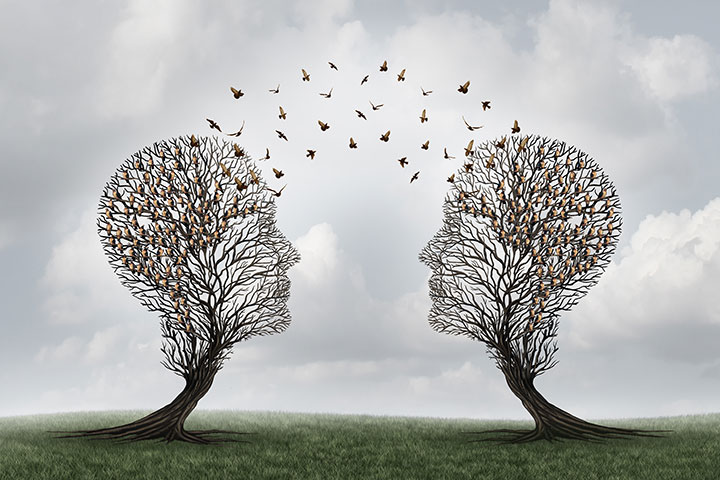If you haven’t experienced it yourself yet, then surely you’ve heard the rumblings of discontent from those who have. It turns out Bette Davis was right: old age is no place for sissies. In fact, it’s mean-spirited. And sneaky, too. It seems you go to sleep one night unfazed, but when you wake up your back is aching, your pants are too tight — and you discover senior dribble on your nightshirt.
Worst of all, it suddenly seems as if The Young People are running the world — and the seniors are left behind, achy, cranky, and spotted.
About Us, But Without Us
Some scenarios from real life illustrate that left-behind feeling — and the missed opportunities and unhelpful solutions that often result from failing to consult with the people alleged to benefit from them.
Two young representatives from a food delivery service and ride-sharing service recently offered up a talk on how their companies’ new apps could be useful to seniors who needed help with food and transportation. After nearly two hours of talk and promises, one woman seated near the back of the room full of mostly senior audience members raised her hand and asked a question: “What’s an app?”
Barely hiding her exasperation, one of the young lecturers described an app — adding that the versions they were discussing that day could only be installed on iPhones.
Then came another question came from another older audience member: “How many people in this room have an iPhone?”
Only five people in the audience of 60 or so raised their hands.
A recent workshop — this one on building age-friendly cities — was presented by a young man wearing a bowtie who looked and acted the part of a whippersnapper. Again, the audience members were nearly exclusively seniors. The presenter described a distant city that had done a good job of making changes to its parks to make them more inviting and accessible for older people.
“The group that organized this talk should fly your city planners out to have a look at those parks,” he told the crowd.
“No,” piped up an older woman seated near the back of the room. “We should tell it to fly out a few of us seniors — to see whether the changes really work for us.”
And finally, a panel of experts was convened for a public forum on planned changes to a memory care unit in an assisted living facility: color-coded hallways, locked borders to prevent wandering, heavily supervised mealtimes, GPS devices for residents to wear so they could be easily tracked.
At length, one woman in the audience stood and said quietly: “I have Alzheimer’s. But I can still do things.”
Lessons on Inclusion
Still, some good can come from the offensive tone deafness that sets in when seniors are banned or ignored from discussions and plans that affect their lives. Caregivers, family members, and friends who regularly deal with older people can learn from it and become sensitized, which may help to ward off future faux pas.
There are a few basic tenets to keep in mind.
Eldercare Is Not Childcare
Many people — particularly those new to caregiving — like to make the analogy that caring for a senior is the same as caring for a child. It’s an understandable gaffe. Both involve ministrations and concern for a person who is vulnerable, perhaps somewhat dependent. Both involve weighty obligations.
But seniors inhabit life with so much more than babies have had time to achieve. The years they’ve lived have imbued them with experiences, usually wisdom, and achievements deserving to be honored and dignified. Take time to learn about them — even if some of the details are a wee bit muzzy.
No One Likes a Know-It-All
Well-meaning caregivers often make the mistake of “handling” some problem they perceive in a senior’s life without discussing their realities or preferences first.
Adult children are most often guilty of this — prone to swoop in and deliver orders that may serve them better than the person they’re attempting to help. They’re also likely to shade the truth to serve their own ends.
Beneath the lies, a daughter concerned about her elderly mother falling really means: “Here, wear this ugly pendant around your neck, identifying you as an addled elder. It has a button on it you can push — that is, if you can find it — in case you fall or get lost or stolen. And I’ll feel better.”
In fact, most falls by older adults are due to improper medications, poor or changed vision, weakness caused by physical inactivity, and tripping hazards in the home such as awkward throw rugs. All these conditions that could be changed or improved with a little proactive diligence.
In addition, many seniors shun certain fall prevention devices that seem too cumbersome or difficult to operate. If a fall prevention device seems like a good idea for a particular older person, discuss it with him or her first — and shop for one together, being mindful of personal preferences and proclivities.
Talk Less, Smile More
The epidemic of loneliness among seniors is now well documented. But too many people make the mistake of attempting to remedy loneliness by filling the air with words.
In reality, many older people say they crave company and companionship, but not necessarily an assault of conversation.
“I wanted a little company, but what I got was a magpie,” said Martin, a nursing home resident who recently participated in a project with the unfortunate name “A Day of Grandcaring” involving visits from nearby residents. “My visitor would simply not stop talking,” he said. “It was exhausting.”
When spending time with a senior, practice listening — and if possible, let him or her take the lead in conversation.
(This article was reviewed September, 2024 since it originally published October 2017.)
